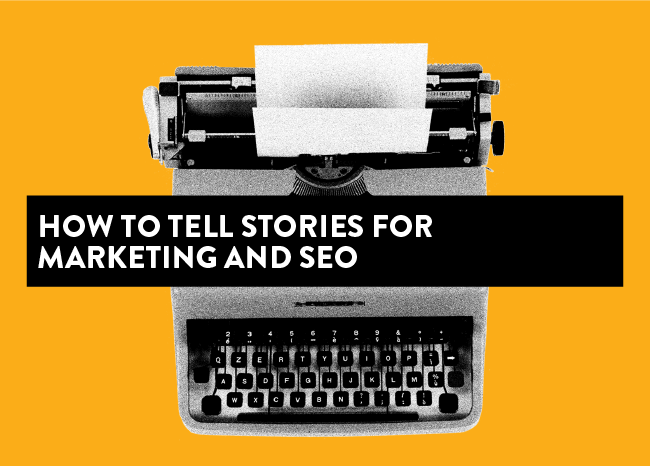 At a cramped desk in a dim room, a hopeful writer crouches over his laptop, sending pitch after pitch to any website that will take them. He yearns to tell his story, and knows that if he could just get published on a prominent site, he would surely attract readers and establish his name as an author. But no one is interested. Though his proposal is well-crafted and heartfelt, he has no previous work to show, and he just can’t convince anyone to buy the story.
At a cramped desk in a dim room, a hopeful writer crouches over his laptop, sending pitch after pitch to any website that will take them. He yearns to tell his story, and knows that if he could just get published on a prominent site, he would surely attract readers and establish his name as an author. But no one is interested. Though his proposal is well-crafted and heartfelt, he has no previous work to show, and he just can’t convince anyone to buy the story.
Eventually, he decides to change tactics. Starting his own blog, he publishes the story anyway, receiving no payment but at least becoming visible online. He resumes communication with publishers, this time asking what they’d like to see instead of pushing his own pitch. At the same time, he watches trending media for the topics people are following, and covers them from his perspective on his blog.
Now the writer, plugged into the industry and with existing work to show, finally sells an article. And after the first come many more. From his tiny desk, he soon creates pages upon pages of content, propelling his name and his stories across the web.
 Storytelling in Marketing
Storytelling in Marketing
This is the story of a freelance writer, but the plot may sound familiar to marketing professionals as well. As a marketer, you know that simply pitching your brand is not enough. Like the writer, you need to resonate with the desires of real people and motivate them to get on board. Even in this process, there is a story involved at every step of the way.
In meeting the needs of consumers, you must hear their stories and learn from them to empathize. You must then promote a brand story to your audience, so they can imagine themselves with your product or service. Once you have a story of success, you can use it to expand and reach more customers. Then the whole story will repeat itself as your business continues to grow.
Sharing these narratives is what brand storytelling is all about, and it’s a proven strategy in marketing. Stories work so well because they appeal to human emotion, and emotions can be far more powerful than facts in our decision-making.
In addition, studies show that most people remember information far better when it’s conveyed in a narrative rather than as a list. Therefore, if you can tell stories with your content while also optimizing for search, your brand will become more visible and more memorable online.
 How To Use Stories for Marketing
How To Use Stories for Marketing
Storytelling in marketing can take many different forms, and your ‘About’ page is far from the only place where narrative can be used. Even without telling a tale from beginning to end, you can incorporate elements of creative writing, plot, and emotional appeal throughout your content. Here are some examples:
- Customer testimonials;
- First-person professional experience;
- Product descriptions;
- Graphics, photos, and video;
- Social media;
- News and current events;
- Establishing your brand story, voice, and identity across all content.
Additionally, thinking beyond your product-oriented content, there is endless opportunity for storytelling in content marketing. Just as the writer learned to tell stories with broader appeal, your brand must connect with a wider audience to succeed online.
Effective content marketing is about broadening your marketing funnel — providing informational value beyond the utility of your products — to be seen and drive engagement. No matter if this shareable content is current news, solutions to common problems, or simple entertainment, a touch of narrative will help it stand out.
 How To Use Stories for SEO
How To Use Stories for SEO
You know you need brand storytelling for marketing to human readers, but how does that fit in with search engine optimization (SEO)?
The world of search engines remains mysterious to many marketing professionals. It’s a technical field dominated by keywords, code, and complex algorithms. In the already-tricky act of balancing human needs with search engine requirements, storytelling may feel like an unnecessary level of difficulty. After all, there’s no point in telling stories if no one can find your content in the first place.
If you feel like you have a vision that will appeal to consumers, but don’t know how to reconcile your messaging with search engines, your hesitations are not unfounded. The algorithms of Google and others, try though they might to think more like us, are essentially robots. People may find value in your creative copywriting, but will the web crawlers approve, or will they penalize it as distracting from the purpose of your page?
The answer here, as it so often goes in the world of online search, is far from straightforward. The good news is that modern SEO allows a lot of room for creativity, and a well-crafted story can improve your on-page optimization. But like a long-winded tale that will put your readers to sleep, poor strategy in storytelling can turn off search engines to your content. You will have to decide case by case, for each story you wish to tell, how best to address your brand, your audience, and search all at once.
Fortunately, SEO best practices can guide your decisions. Just as good storytellers know the plot formulas proven to captivate your attention, marketers can rely on the following SEO principles to maximize the impact of storytelling.
Keyword Optimization
Keywords are at the core of SEO, and their eminence does not diminish with even the most riveting story. If your page does not match the terms that searchers are likely to use, then no one is likely to find it. The freelance writer had to ask what topics publishers were interested in. Similarly, marketers must conduct keyword research to understand consumer behavior online.
Once you know what keywords your audience is searching for, it’s important to target those terms in your content. This means your stories can’t rely entirely on imagery or metaphor, but must get to the point sooner rather than later. A certain amount of flair can actually promote keyword presence, however, while avoiding penalties from Google.
Recall for a moment the old days of “keyword stuffing” when peppering identical terms across your page was a way to win at search. Human readers don’t care for this repetition, and nowadays Google downgrades it, too. Instead, search engines are getting better at identifying synonyms and even interpreting semantics in natural language.
This allows you to flex some creativity in your writing while also optimizing for keywords. Though you must be sure to hit the popular search terms, you can also switch up your wording and relay your message in alternate ways. Doing so will not only make your piece more interesting, it can increase keyword density while preserving variety and relevance in your content.
Content Relevance
After learning what topics were in demand, the writer had to deliver the right content while maintaining his signature style. In the same way, your content should remain relevant to searcher intent while letting the voice of your brand shine through. For example, you might address a topic of interest with a story from first-person experience. This additional narrative can be valuable to the reader and also favored by search engines, as long as you don’t go overboard.
Consider the model of a recipe blog, wherein a searcher finds the instructions only after scrolling past paragraphs of wordy backstory. This approach is generally disliked by human readers, but appeals to search engines by introducing contextually related information and also differentiating the page from the competition (a recipe on its own does not offer much room for creativity).
The tangential tales of these blogs may be extreme, but a toned-down version of the model can work well for most brands. It is possible to keep your anecdotes relevant to searcher intent while also supporting your conversion goals. This can be a tricky balance to strike, but doing it well can strengthen your brand identity and also augment signals of authority to your domain.
Expertise, Authoritativeness, Trustworthiness (E-A-T)
Keyword optimization and content relevance are relatively straightforward concepts for SEO, but a third principle, known as E-A-T, is more complicated to assess. The acronym stands for expertise, authoritativeness, and trustworthiness, which are categories of quality assessment that Google names in its evaluation guidelines. To understand the role of E-A-T for SEO, think of it like the freelance writer’s online portfolio.
After writing many articles on a variety of subjects, the author had his name attached to quality content across dozens of websites in addition to his personal blog. Anyone looking him up would quickly find a body of work proving his credibility as a professional writer. Similarly, E-A-T is the reputation of your domain as perceived by search engines, influenced by content on the domain itself, and also by links elsewhere online that reference it.
There is no single metric that defines any of the three E-A-T categories, but it’s helpful to consider the general meaning of each:
- Expertise is your ability to explain a topic comprehensively along with its relevance within a broader context. This means not only knowing your products inside and out, but being able to draw connections to other industries and areas of expertise as well.
- Authoritativeness is your breadth of knowledge and research on a topic. This can be demonstrated by citing reputable sources, quoting experts in the field, and by clearly linking among related content on your own site.
- Trustworthiness is the value of your content as shown by other domains. Search engines evaluate this through backlinks, or links to your domain from elsewhere online. Therefore, a diverse and consistently growing backlink profile is crucial for promoting visibility in search.
So while E-A-T guidelines can be satisfied without the use of narrative in your writing, there are some specific benefits you may enjoy by injecting your informational content with some extra creative flair.
- E-A-T characteristics do not typically shine on blatantly product-focused pages, or any pages that seem unoriginal compared to established content elsewhere on the web. Therefore you might boost the quality of your content with additional information, new perspectives, or interesting stories that your competitors don’t have. Just be sure to back up your claims with respectable sources when applicable.
- Increasing the volume of content on your site may boost the E-A-T qualities of your domain, as long as that content remains credible and relevant. It is important to note that number of pages and page word counts do not directly affect SEO, but in general, if you publish higher amounts of quality information than your competitors, your content is likely to be favored in search. So although the facts should come first, a bit of creativity and a touch of supporting narrative can make a big difference in augmenting your content in a way that conveys expertise, authority, and trustworthiness.
- Links only go to those who earn them. The most link-worthy content is that which appeals to a broad portion of your in-market audience, or even beyond that audience. Here again, the information on the page is what’s most important for making it linkable, but if you can also make that content memorable for the reader by showing off the voice of your brand, you can more easily support conversion while also satisfying the E-A-T of your domain.
 Additional SEO Benefits of Storytelling
Additional SEO Benefits of Storytelling
There can even be additional benefits to incorporating narrative and flair to your pages. Here are a few final advantages you may find by enhancing your content with storytelling:
- Adding detail and context can improve your ability to target long-tail keywords, therefore increasing your competitiveness in search.
- Sharing more of your knowledge and experience will increase opportunities for internal links, or references to other pages on your own domain.
- The more information you include on a page, the more room you’ll have (both contextually and physically) for additional media like photos and videos, which can further advance your storytelling. If your revenue model involves advertisements, you’ll also have more room for ads on the page.
- Engaging your readers can increase the average time spent on your pages and also decrease the bounce rate, or the prevalence of single-page sessions on your domain. These metrics are important for evaluating page experience, another set of metrics that Google weighs in rankings.
It’s important to remember that the main benefit of storytelling for SEO remains the same as for storytelling in general: to set your brand apart from the rest. Therefore, you should focus on sharing your brand’s authentic story without letting keyword optimization, searcher intent, or any other aspect of SEO scare you away. If you just keep best practices in mind, it is possible to win at search while telling your brand story.
The freelance writer, confident though he was in his own creativity, learned to let the audience guide his writing. He found success by delivering on what people wanted to read, and making it his own with style and voice. As a marketer you can do the same, by listening to what your customers are searching for, and uniquely meeting those needs while letting your brand shine.

